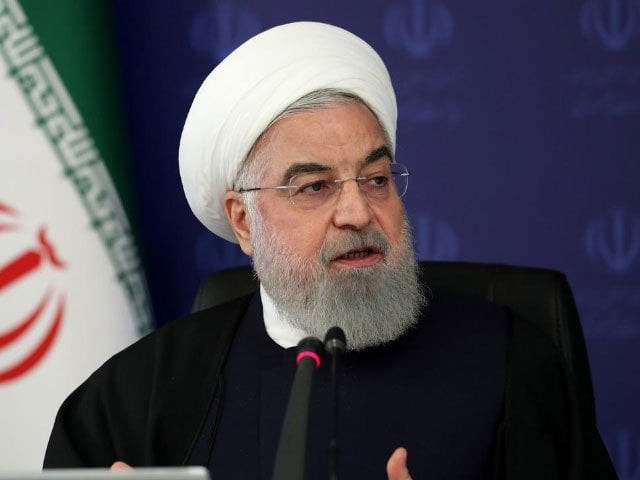Iran's Rouhani defends execution of captured dissident journalist Zam
Iranian President also rejected any negotiations on Tehran's missile program in a televised news conference

Iranian President Hassan Rouhani defended Saturday’s execution of a prominent dissident journalist based in France and captured by Iran last year, saying the death sentence passed on Ruhollah Zam was carried out lawfully.
European countries “have the right to comment, but Zam was executed upon a court’s ruling,” Rouhani told a televised news conference, noting that the judiciary was independent. “I think it’s unlikely that this will hurt Iran-Europe relations.”
Zam had been based in Paris and was captured last year in circumstances that have not been officially disclosed. A news agency close to Iran’s Revolutionary Guards said last week he had been captured while in Iraq.
He was convicted of fomenting violence during anti-government protests in 2017. His Amadnews social media feed had more than 1 million followers.
France called Zam’s execution on Saturday “barbaric and unacceptable”.
Iran’s foreign ministry summoned envoys from France and from Germany, current holder of the European Union’s rotating presidency, to protest over criticism of the execution, Iranian media reported on Sunday.
No negotiations on missile program
Iranian President Hassan Rouhani said on Monday that Tehran’s missile programme was non-negotiable and that US President-Elect Joe Biden is “well aware of it”.
Biden’s victory has raised the possibility that Washington could rejoin a deal Iran reached with world powers in 2015, and he appears to see a return as a prelude to wider talks on Iran’s nuclear work, its ballistic missiles and regional activities.
But Tehran has ruled out halting its missile programme or changing its regional policy, and instead has demanded a change in US policy, including the lifting of sanctions and compensation for the economic damage caused during the US withdrawal from the nuclear accord.
“The Americans were trying for months to add the missile issue (to the nuclear talks) and this was rejected.... And Mr Biden knows this well,” Rouhani told a televised news conference.
Tensions between Washington and Tehran have risen since 2018, when President Donald Trump abandoned the nuclear deal, and restored harsh economic sanctions to pressure Tehran into negotiating stricter curbs on its nuclear program, ballistic missile development and support for regional proxy forces.



















COMMENTS
Comments are moderated and generally will be posted if they are on-topic and not abusive.
For more information, please see our Comments FAQ